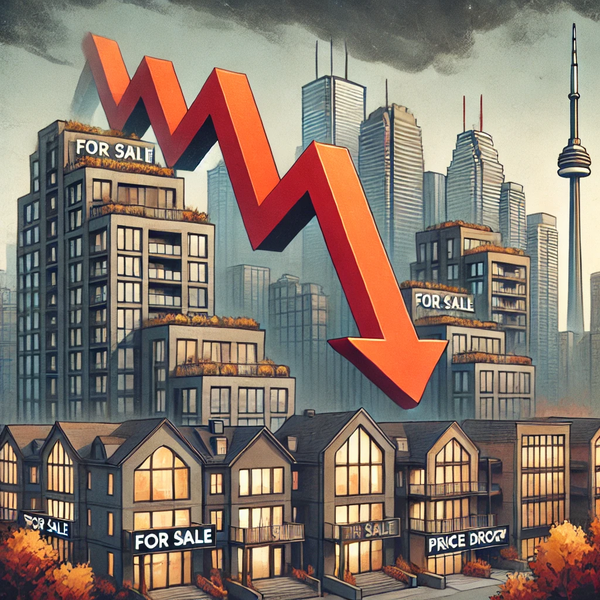Lenders Turn Developers: Navigating Canada’s Condo Crisis
Canada's real estate market is undergoing a seismic shift, with lenders stepping into uncharted territory as developers falter under the weight of rising interest rates. A surge in receiverships—forced sales of distressed projects—is pushing lenders to take control of partially completed condo developments to protect their investments. This trend reflects a combination of creative problem-solving and calculated optimism about the future of Canada’s housing market.
From Lenders to Developers
In an unprecedented move, some lenders are buying troubled projects out of receivership and taking on the role of developers. British Columbia-based Gentai Capital, for instance, partnered with KingSett Capital and Dorr Capital to acquire a partially completed condo project in Kitchener for $75 million. Gentai converted its second mortgage into equity, contributing fresh capital and leaving construction oversight to ELM Developments.
This approach, known as a “credit bid,” allows lenders to salvage their investments when traditional options, like selling the project to repay debt, fail. But it also signals a challenging market environment. As Mike Czestochowski of CBRE Canada notes, “This is the lender getting creative, and having their hand forced.”
Why Take the Risk?
Taking on unfinished developments is risky, especially for lenders with little experience in construction. However, selling such projects in the current market often means settling for less than the outstanding debt. The alternative—completing the project and waiting for a market rebound—offers a chance to recover costs.
Brian Dorr of Dorr Capital, a partner in the Kitchener project, echoes this sentiment: “If you can do this, I think it’s the best solution for keeping the lenders whole.”
The Bigger Picture
Canada’s real estate market has faced mounting pressures since interest rates began rising in 2022. Developers, squeezed by higher borrowing costs and slower sales, have increasingly defaulted on loans. Receiverships reached a decade-high in 2023, and 2024 is poised to surpass that record.
Despite the current surplus of condos in markets like Toronto, experts see a looming supply shortage. Developers have pulled back on new projects, creating a gap that will be felt in the coming years. Shaun Hildebrand of Urbanation warns, “You’re currently dealing with a glut in the market at the moment. But it’s a temporary phenomenon and it’s going to quickly turn into a situation of under-supply.”
A Calculated Bet on Recovery
Lenders entering the development game are banking on Canada’s housing shortage and a market recovery driven by renewed buying activity, spurred by recent interest rate cuts. By completing projects, they aim to capitalize on rising prices when the market rebounds.
Mitch Vininsky of KSV Advisory explains that credit bids not only protect lenders’ interests but also prevent opportunistic buyers from snapping up projects at rock-bottom prices. “It allows the parties to establish a floor and effectively deters bottom feeders,” he says.
Looking Ahead
While credit bidding is a last resort, it reflects lenders' belief in the resilience of Canada’s housing market. By stepping in to complete stalled projects, they are positioning themselves for potential long-term gains while addressing an immediate crisis.
This trend underscores the complexities of navigating a market in flux. For buyers, sellers, and investors, it’s a reminder that Canada’s housing market, while turbulent today, remains fundamentally strong. As the dust settles, these bold moves by lenders could help stabilize the market and pave the way for a brighter future.
Categories
Recent Posts












